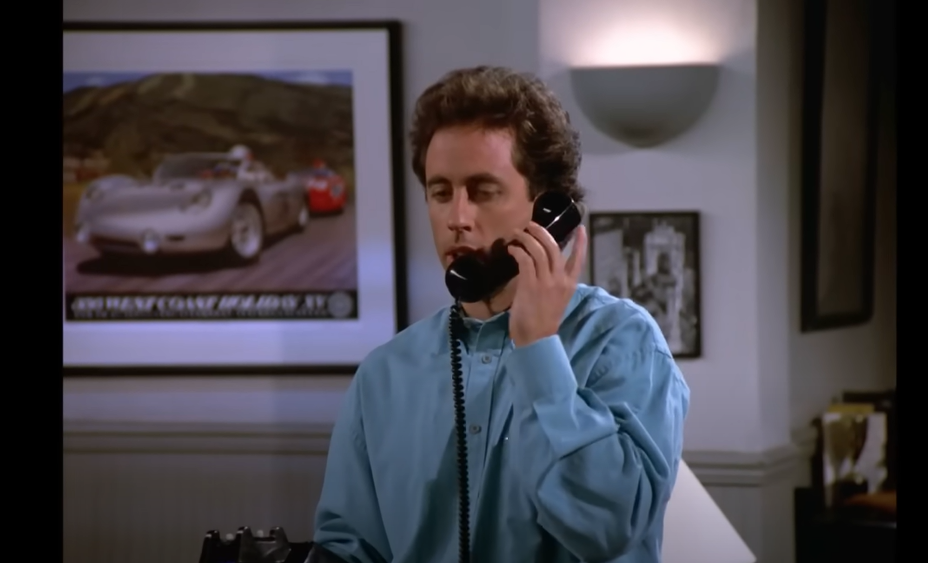Jerry Seinfeld, whose iconic television show “Seinfeld,” is a classic and all-time favorite, is not used to having the audience walk out on his standup gigs.
But this is what happened to him a few days ago when he was the invited speaker at Duke University’s commencement ceremony where he was awarded an honorary degree.
Seinfeld, whose comedy has overtly and deliberately, avoided political topics, has lately become a vocal supporter of Israel’s war on Hamas. When asked about this radical change in his public behavior, Seinfeld has replied with two words: “I’m Jewish.”
His comedy is characterized by its clinical, observational humor, which delves into the minutiae of everyday life and presents it in a way that is relatable and humorous to a wide audience. His approach often involves taking a seemingly mundane situation and exploring it to its most absurd conclusions, highlighting the quirks and idiosyncrasies of social norms and personal behavior.
This style is evident in his stand-up routines as well as the television show “Seinfeld,” which is often described as a “show about nothing” due to its focus on everyday situations and conversations. His comedy avoids controversial topics and risqué subjects.

Over time, as the social landscape has changed, he has also been a passionate critic of political correctness. He has expressed concerns that the comedic landscape is being altered by a culture that is overly sensitive to potentially offensive material. Seinfeld believes that this shift towards political correctness can stifle creativity and lead to the decline of comedy as an art form. Politics as a topic of comedy, he believes, divides and fractures the cohesiveness of the audience.
He has mentioned in various interviews that the fear of offending can prevent comedians from taking risks. It is ironic that now he too has become a victim of political expression—if not of political correctness.
But while he has successfully avoided using “Jewish humor” in his performances, he is nevertheless identified as a “an avatar of American Jewish life”.
Since the attacks of Oct. 7 in Israel, and through the aftermath in Gaza that has now seen the death of almost 35,000 Palestinians, Seinfeld, 70, has abandoned his former apolitical stance and emerged as a strikingly public voice against antisemitism and in support of Jews in Israel and the United States.
As the conflict in Israel goes on, Seinfeld has dug deeper into his Jewish identity, he has shared reflections about life on a kibbutz in his teens, and in December traveled to Tel Aviv to meet with hostages’ families, later recounting the missile attack that greeted him during the trip. He did not make any mention of the destruction that he must have seen in Gaza.
He has become part of the celebrity political activism that up to the present he has decried as being incongruous with comedy. He has engaged in letter-signing campaigns, earnest messages on social media, frank discussions on talk shows and in interviews.
His wife, Jessica, has admitted to bankrolling and promoting a counter protest at UCLA where clashes between pro-Israel and pro-Palestinian supporters turned violent.

The Seinfelds are paying the price for coming out as politically engaged. In February, as he left a “State of World Jewry” address given by Bari Weiss, a former New York Times opinion editor and writer, the famously apolitical comedian was met with shouts of “Genocide supporter!” by protesters.
As Jerry Seinfeld delivered his speech at the Duke commencement ceremony, after the protesters had been escorted out he carried on as usual, but this time his comedy was edged with his newly found awareness of his identity. “I grew up a Jewish boy from New York,” he said to applause from the crowd. “That is a privilege if you want to be a comedian.”
Meanwhile, as a reminder of how the Israel-Hamas conflict is playing out in Israel and on the global stage, graduates walked around campus, chanting: “Disclose, divest, we will not stop, we will not rest.” When they arrived at a green space, they were joined by hundreds of other people — including faculty, relatives and other protesters — who organized a makeshift graduation for them.












